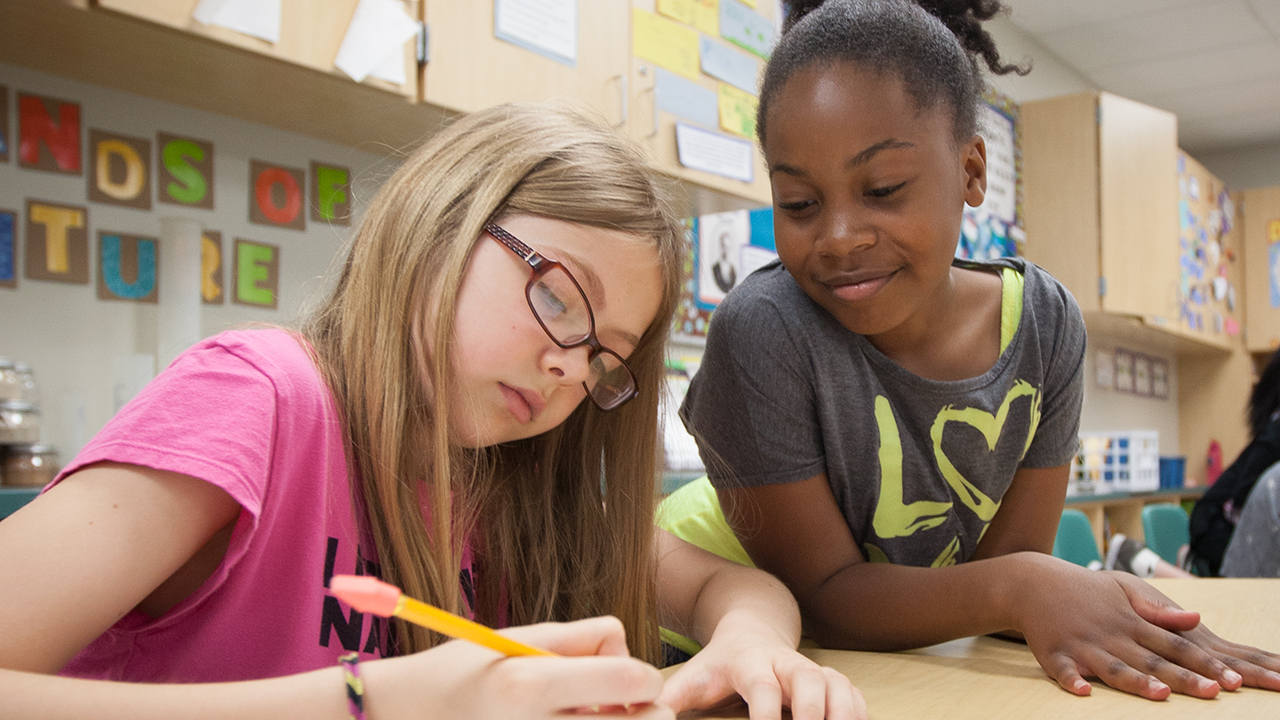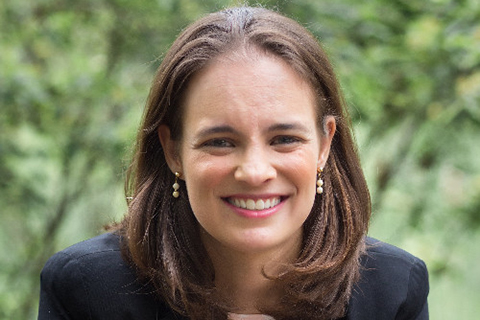- YouTube
- TikTok
OU joins multi-state effort to expand open-access science, literacy elementary curriculum
Project is being funded by shared $7.5 million grant

Oakland University will share in a $7.5 million grant as part of a multi-state effort to develop an innovative, research-driven science curriculum designed to support elementary teachers in engaging students’ natural curiosities and interests across the world.
The open-access project is being spearheaded by OpenSciEd, a major national effort designed to develop and support freely available high-quality K-12 science instructional materials and teacher professional learning resources.
According to a recent report, there is limited availability of highly rated elementary science curriculum materials that build on the Next Generation Science Standards. The OpenSciEd project will develop materials that fill that gap.
 |
| Amber Bismack |
Oakland University will support the development and revision of the K-2 instructional materials. Leading the work at OU is Amber S. Bismack, a faculty member in the Teacher Development and Educational Studies Department. This project builds on her postdoctoral work on the Science, Oral Language, and Literacy Development from the Start of School (SOLID Start) project at Michigan State University that developed K-2 sciences and literacy curriculum materials.
“Young children come to school curious about the world around them,” Bismack said. “It is our job as educators to build on their curiosities in ways that expand their science and literacy learning.”
Northwestern University will lead a developers consortium — including Oakland University, Michigan State University, BSCS Science Learning, Horizon Research, Inc., The University of Texas at Austin, and Carolina Biological Supply Company — to create, field-test, revise, and publicly release elementary science curriculum over the next four years. The consortium will also provide professional learning opportunities and open source resources to address the pressing needs of elementary teachers and support their effective implementation of the science materials.
“Our elementary classrooms need to be places where students see the science they are learning as addressing questions and problems they care about,” said Brian Reiser, professor of learning sciences in the School of Education and Social Policy at Northwestern University. “We are excited to work with our development partners, teacher collaborators, and state leaders to develop the instructional materials and professional learning resources to make this vision a reality for K-5 students and teachers.”
A state steering committee, science teachers, and students from 300 classrooms across 10 states — California, Michigan, Iowa, Louisiana, Massachusetts, Washington, New Jersey, Oklahoma, New Mexico, and Rhode Island — will be critical partners in this work. As teachers prepare to help write and test materials in class, students will have a voice in sharing what phenomena intrigues them. Kindergarteners may wonder how ants change their environments to survive, while second graders want to know why plants can grow in sidewalk cracks or on building roofs. Fourth graders might be curious about why some things wash up on beaches.
As in the OpenSciEd middle school that is now available, and the OpenSciEd high school materials that are under development, OpenSciEd elementary units will help students build key science ideas and practices that connect to the problems and questions students identify. A group of experts will also be dedicated to incorporating equitable sensemaking strategies throughout the program. The resulting units will not just be designed to engage some students, they will be designed to engage all students — particularly students from underserved communities.
“We believe elementary students should engage with science in ways that spark curiosity, deepen their understanding of the world around them, and foster their own identities,” said Erin Hahimoto-Martell, acting associate commission of the Massachusetts Department of Elementary and Secondary Education. “As a state partner, we look forward to participating in the development of the OpenSciEd curriculum, a key resource to support our elementary educators in the teaching of science.”
The project is being funded by the Carnegie Corporation of New York, the Bill & Melinda Gates Foundation, the William and Flora Hewlett Foundation, and the Walton Family Foundation.


 November 1, 2022
November 1, 2022